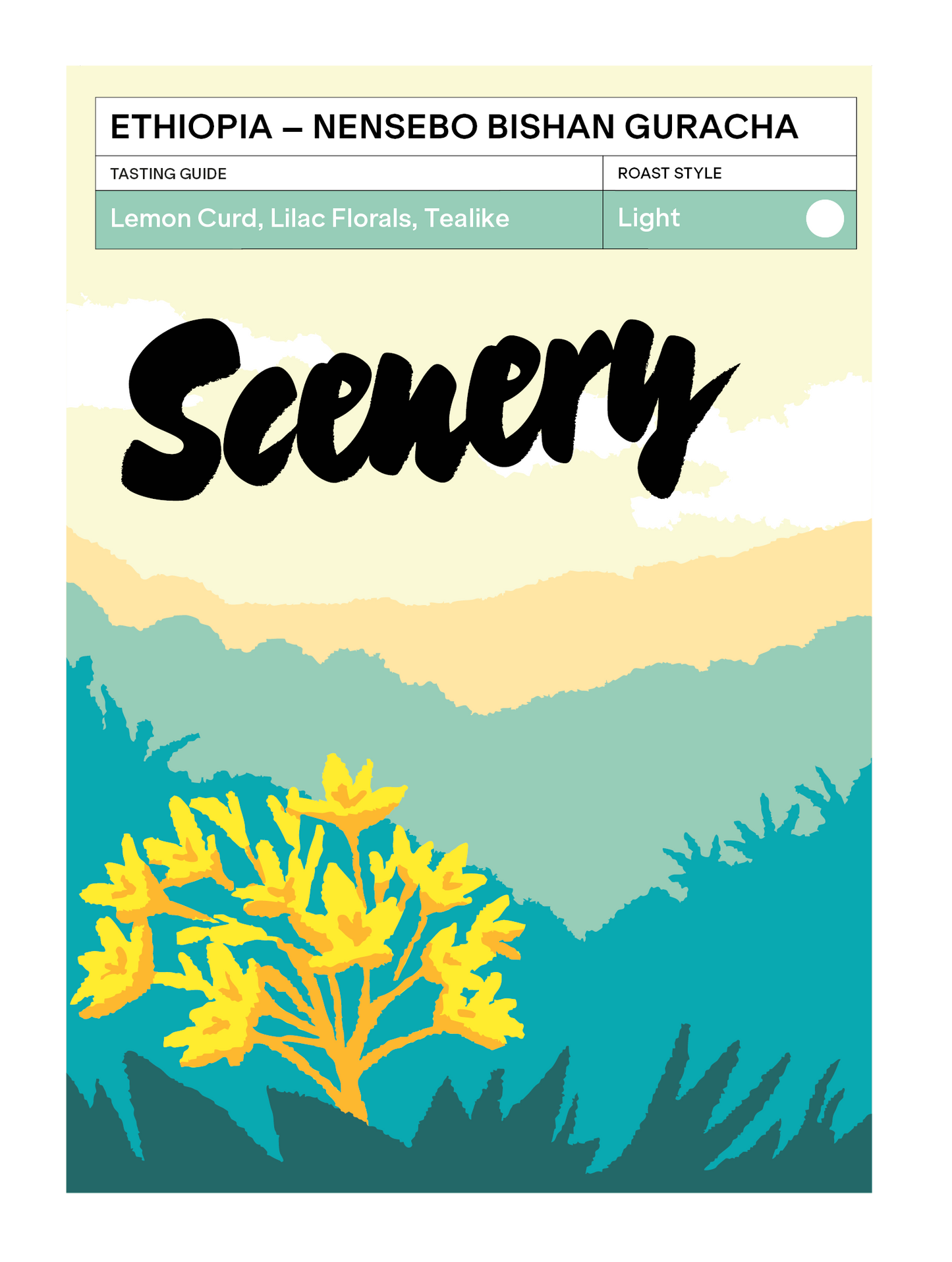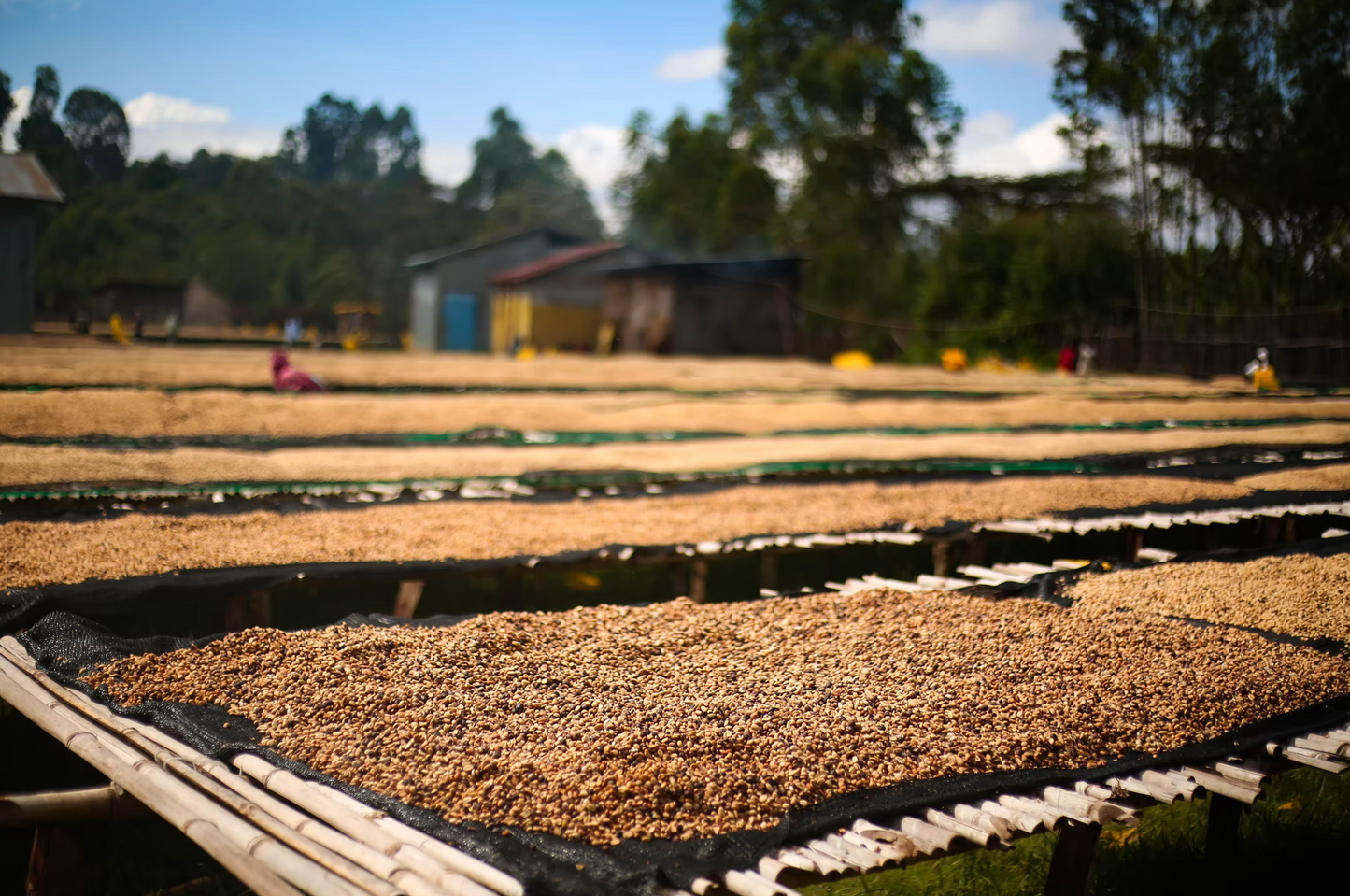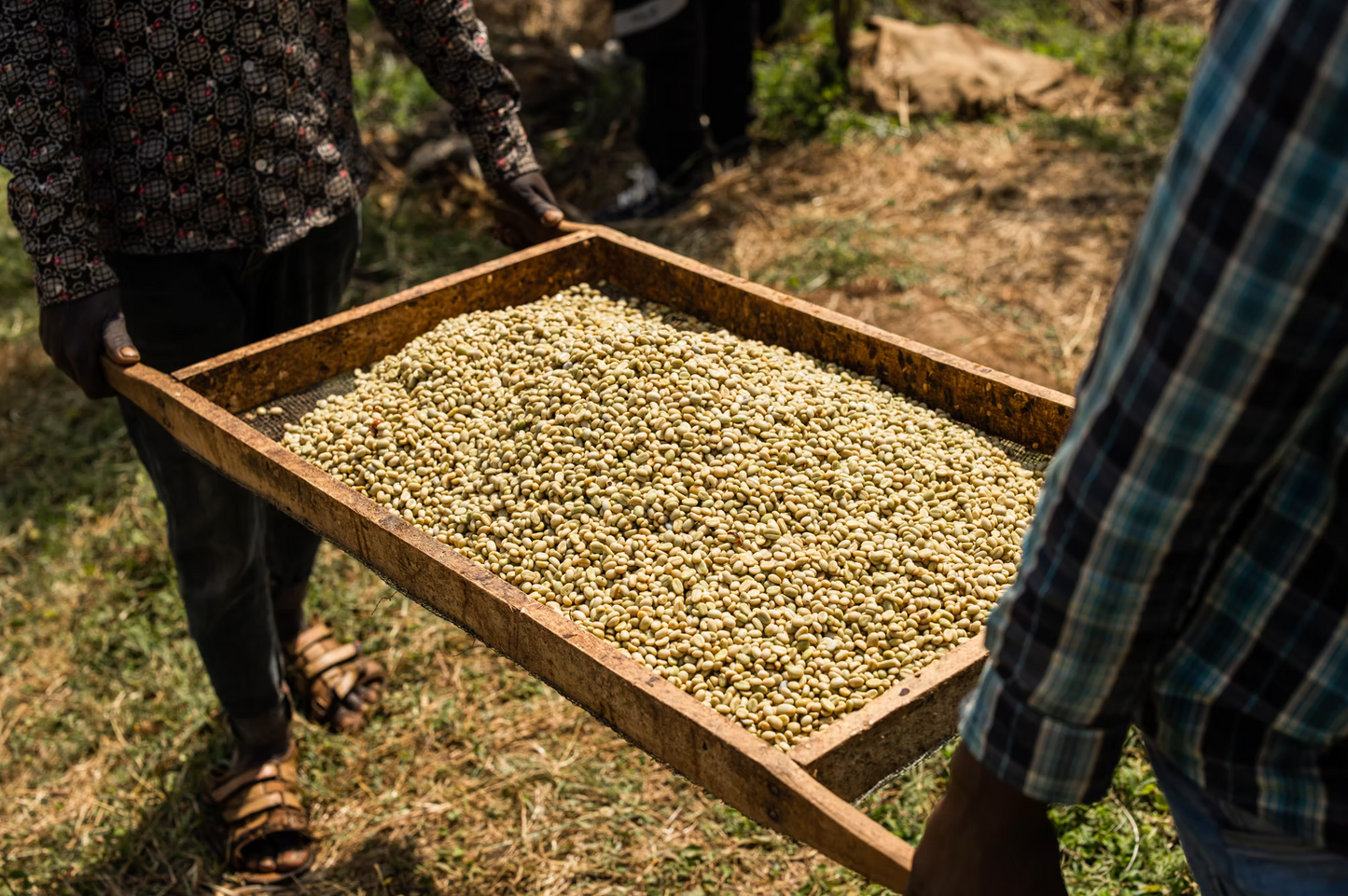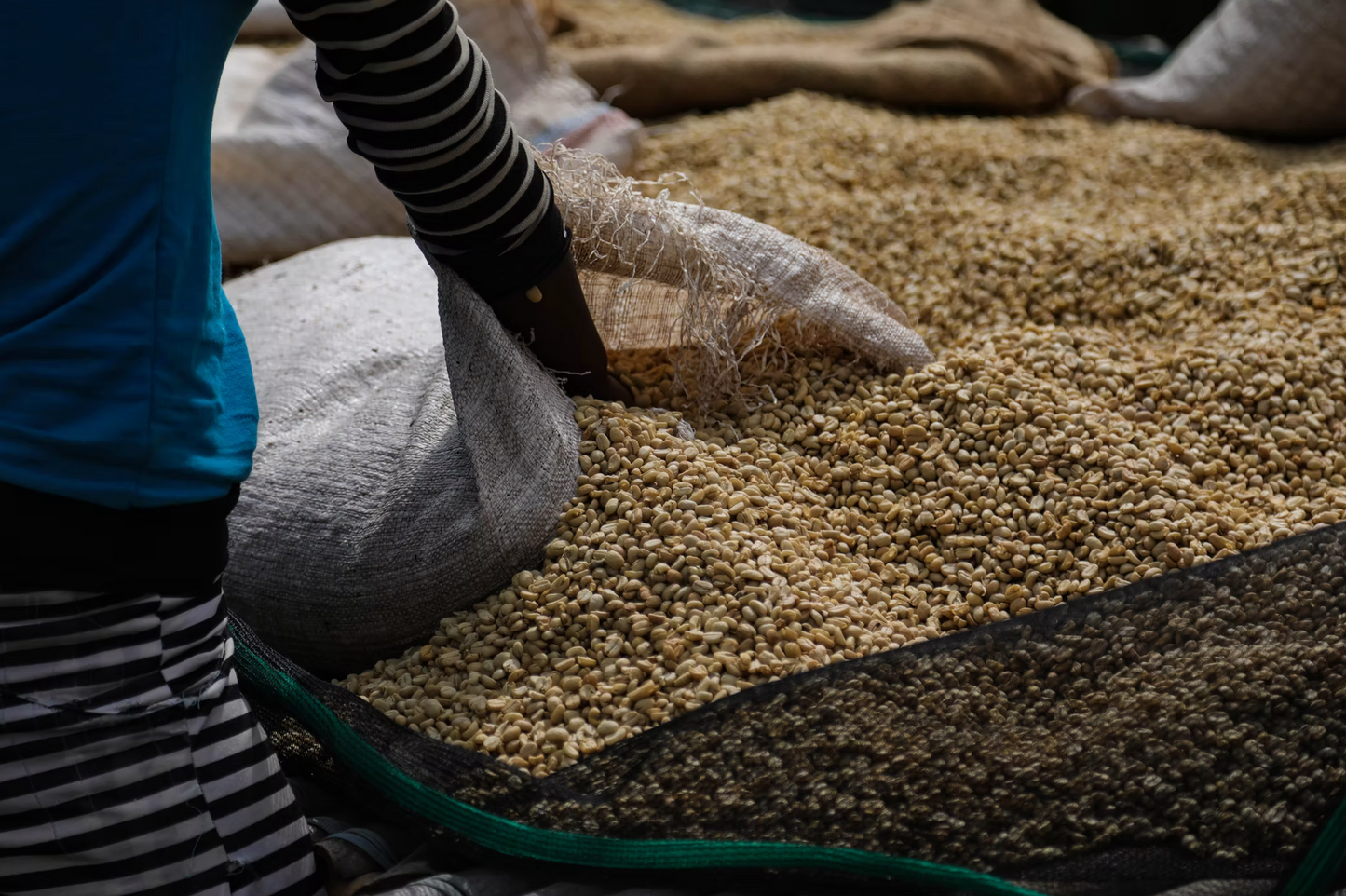



Brew Guide:
Best Brewed with: Filter
Lightest Influence: Extremely fast roasting to maximise brightness. This roast style requires rest to open up, but it's maximising the delicate complexity of this lot.
Best Rested: 3-4 weeks
Filter: 60g/L, 97°C when fresh but when well rested you can go down to 93-94°C
Espresso: 18g/45g/30-35s. Can also work as a turbo
We’re tasting: Lilac florals abound in the aroma alongside citrus zest; in the cup lavender, green apple & lemon curd lead whilst hot. As it cools, we're finding the complex sweet spice of passionberry, clove & a light caramel note of panela sugar; with a silky body and good structure.
Traceability
Country of Origin: |
Ethiopia |
Region: |
Worqa Nensebo, West Arsi, Oromia |
Producer: |
250 smallholder farmers selling cherry to Bishan Guracha, which is managed by Asefa Dukamo Korma |
Station: |
Bishan Guracha |
Variety: |
JARC Cultivars & Local Landraces |
Elevation: |
2000- 2200 MASL |
Process: |
Traditional Washed: Ripe cherries delivered to Bishan Guracha and floated/sorted before pulping in the same day they are delivered. Parchment dry fermented in open tanks for 72 hrs before thorough washing to remove all mucilage, before drying on raised beds over 12-15 days, with continual sorting and temperature control. |
Import Partner: |
Coffee Legends via Daye Bensa |
Harvest |
24/25 - Arrived UK: May 9th, 2025 |
The Story
We’ve made a commitment to try and work with producer owned value chains wherever possible. This means that those that grow the coffee, also manage the exporting and importing process ensuring that the maximum value for our purchase is returned upstream. This means both working with smaller independent outfits, as well as larger operations.
Daye Bensa was founded by two brothers - Asefa and Mulugeta in 1996, setting up a farm and washing station in the Bensa region of Sidama. Initially only selling internally (as Ethiopia has a strong internal market for coffee - around 50% of what is grown in Ethiopia never leaves its borders), in 2006 they started exporting coffee internationally. Since then, Daye Bensa has grown to be one of the top 5 largest international exporters by volume (and most assuredly higher by quality!) in Ethiopia, but still to this day family owned and based in-country.
Atrie from Coffee Legends is Asefa’s brother in law - having worked as a manager for Daye Bensa, with a stint in finance in the UK, he took the leap to set up a UK import office for Daye Bensa. Working with Atrie is a delight- he has a deep passion for coffees from Ethiopia, and an intimate knowledge of both the Daye Bensa supply chains.
Daye Bensa acquired the Bishan Guracha station in 2021. The name translates to "Black Water" - after a major river that winds through this highland corner of West Arsi, one of the major tributaries of Lake Hawassa. Moving beyond their Sidama base allows Daye Bensa to work with farmers in different regions while applying the same processing standards they've developed over 25 years.
For the 250 smallholder farmers selling cherry to Bishan Guracha, working with a large exporter means practical benefits: immediate payment when they deliver cherry, a second payment after the coffee sells, and access to things like quality training, seedlings & agronomic support.
As roasters, working with established exporters like Daye Bensa is crucial for maintaining traceability through Ethiopia's complex export system. It used to be that the Ethiopian Commodity Exchange (ECX) historically stripped coffee of its provenance, mixing lots together and making farm-level traceability impossible. You'd need to buy co-op level lots, and the exporters would work the system to figure out the appropriate lot codes on the auction to "complete" the traceability chain.
A 2017 rule change shook that up - allowing direct exports if partnered with a dry mill, but the reality is that the majority of Ethiopian smallholders still lack the infrastructure to maintain lot separation from cherry to export.
Large exporters with their own washing stations, dry mills, and warehouses can ensure this coffee genuinely comes from Bishan Guracha station rather than becoming another anonymous regional blend - something that was impossible for most Ethiopian coffee just a few years ago. Working with quality focused exporters with a reputation to protect means we can also be assured that the lots haven't been mixed up/blended in the warehouse or in the dry-mill - something that is unfortunately common with less Speciality focused operations.
- Choosing a selection results in a full page refresh.
- Opens in a new window.




